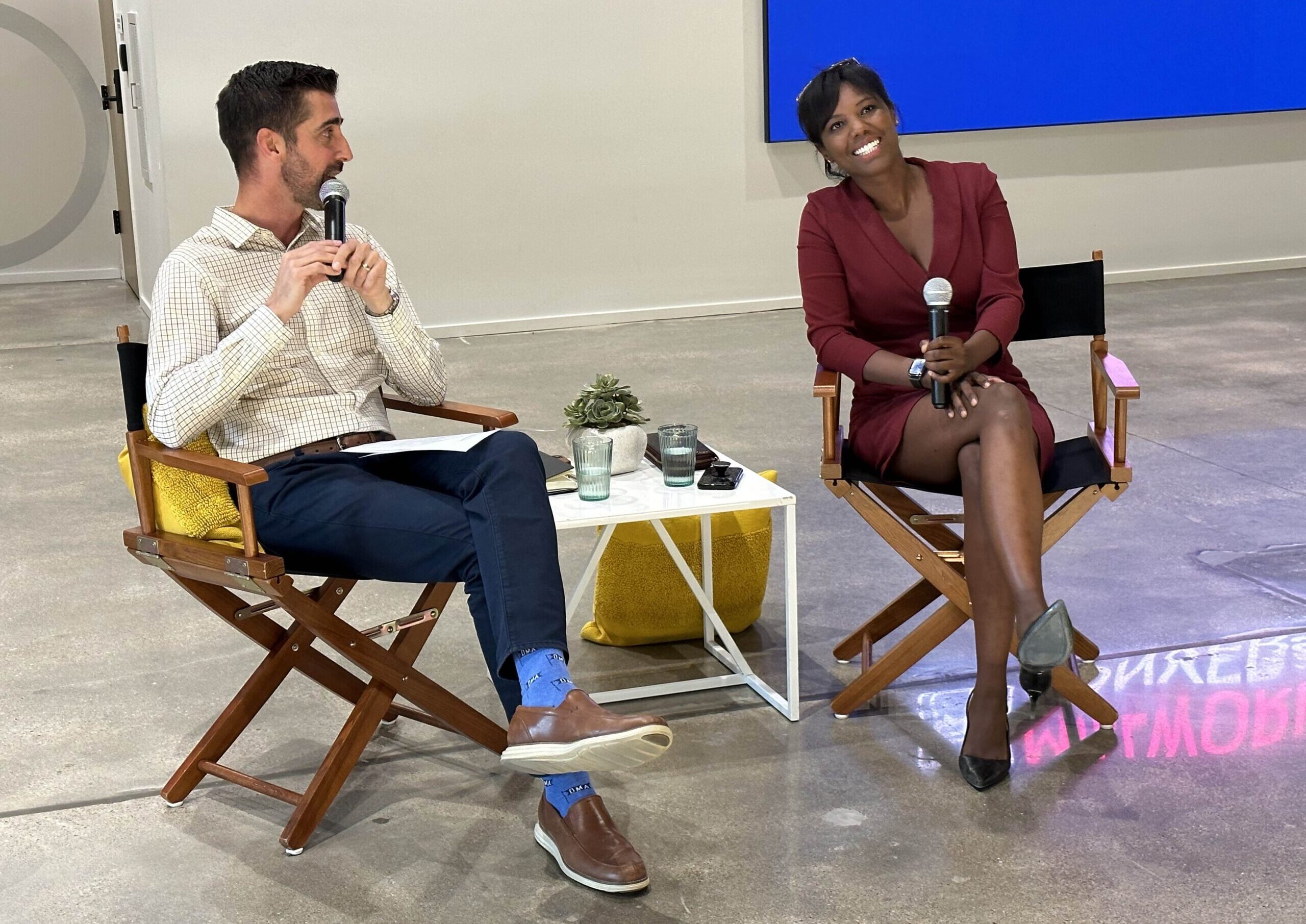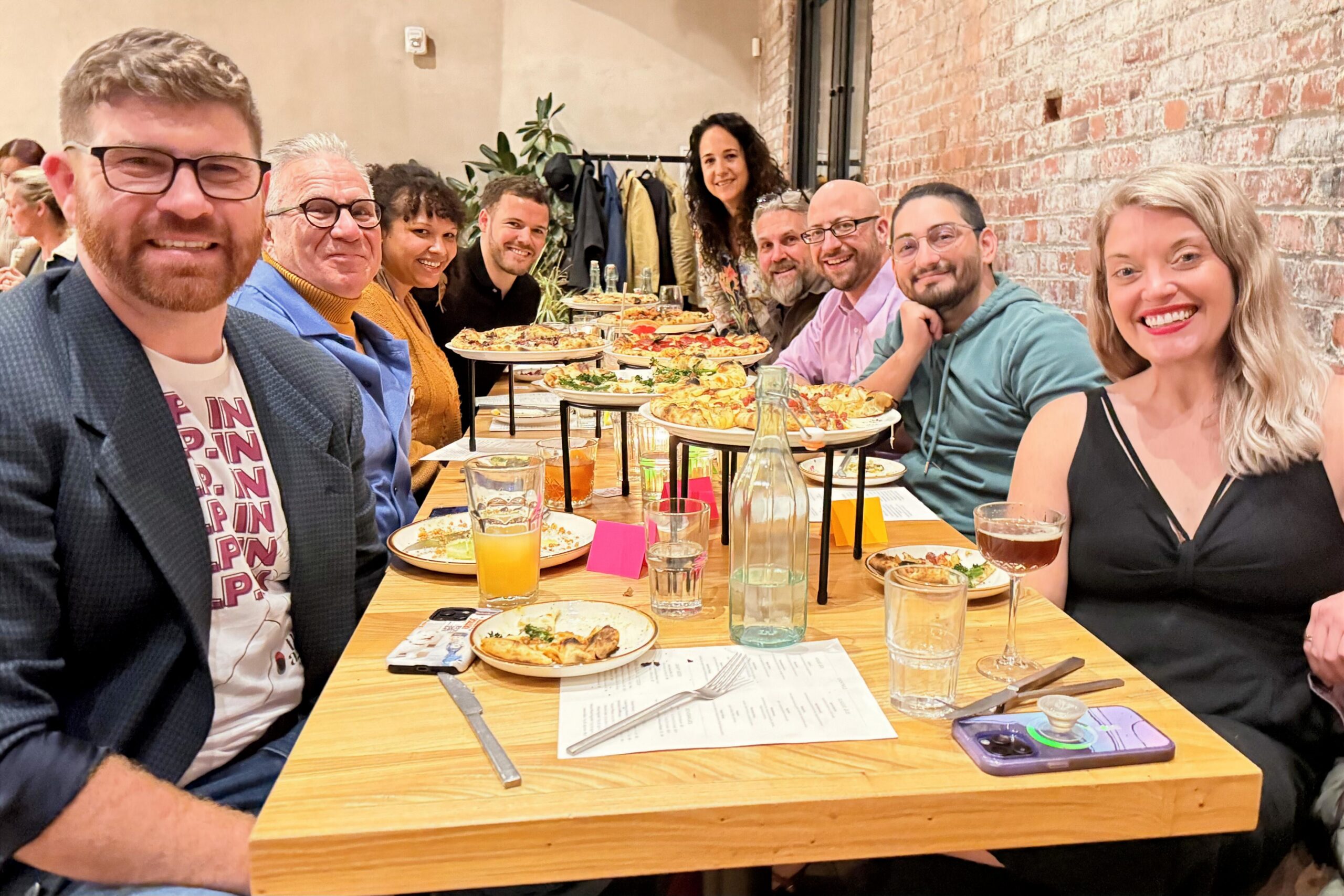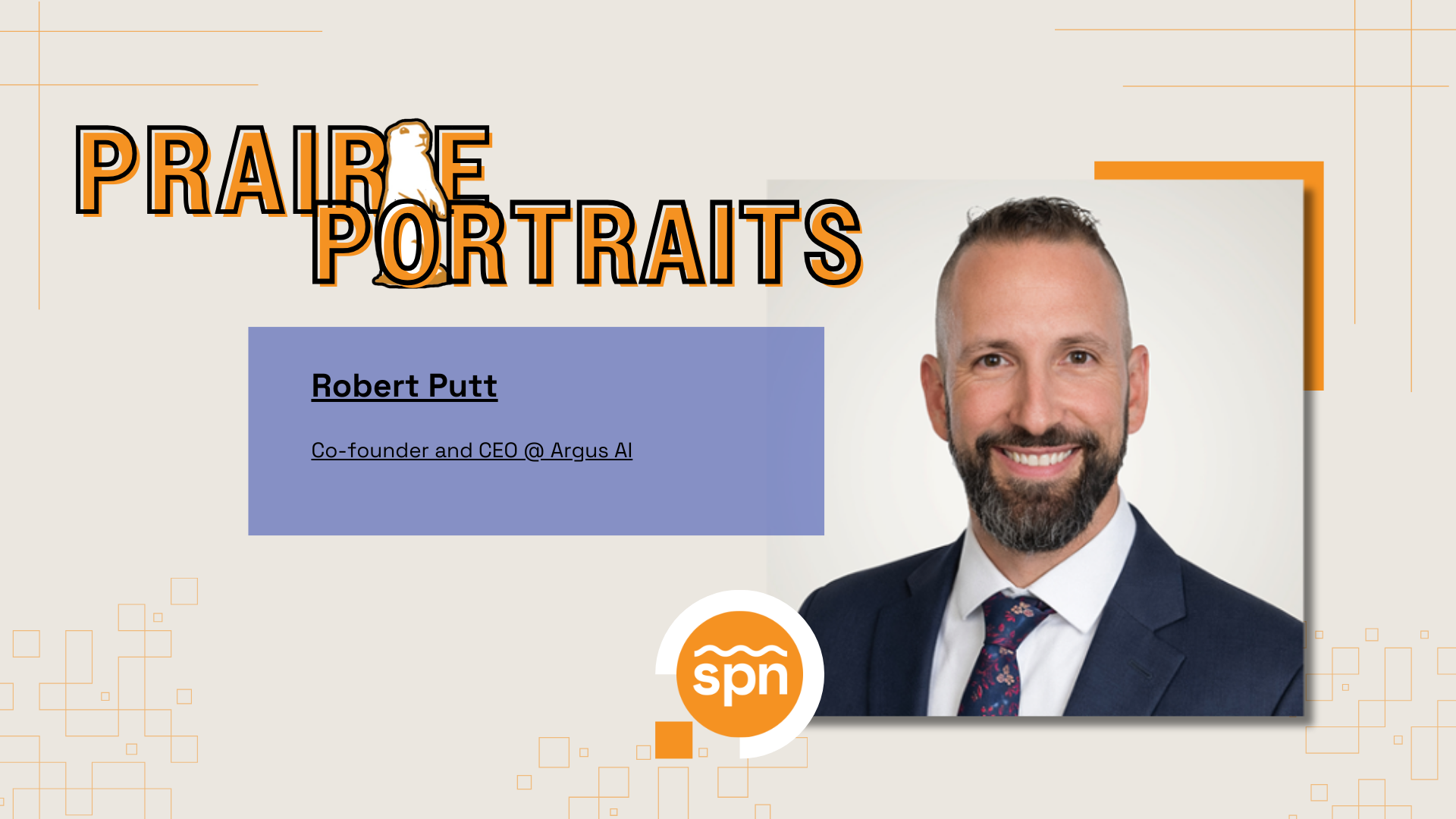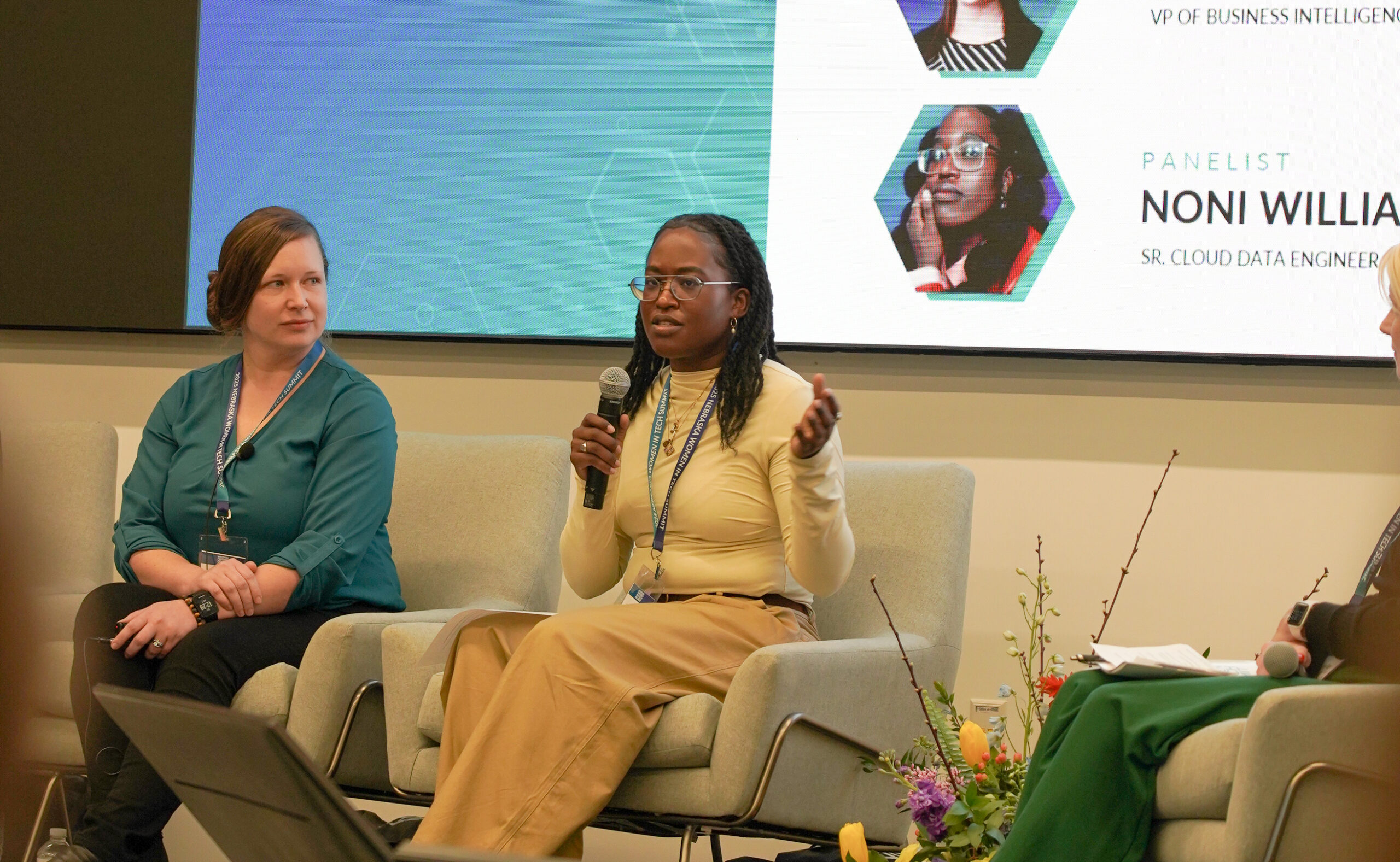Shonna Dorsey has been a staple in the Omaha tech community for most of the last decade since co-founding Interface Web School in 2014. Today the north Omaha native serves as executive director of the Nebraska Tech Collaborative. She discussed her career path and passion for tech workforce development with moderator Jeff Slobotski at a recent Millwork Conversations event.
Dorsey said the Omaha startup community “feels a lot more welcoming and inclusive and supportive” compared to 10 years ago. “It was not that [way] when I started. It was super hard to get anything…going and get support,” she recalled of her time working to launch Interface Web School.
Interface Web School was a web development training school started with the intent to help build and retrain tech talent in the Midwest.
“I was criticized a lot at that time for not being super technical,” she said. “But I believe in the power of tech and how it can transform people’s lives. I’ve seen it time and time again.” So Dorsey persisted.
Although she wasn’t a programmer herself, Dorsey was confident that her existing skill set: project management, follow through, cultivating an extensive network with technical expertise — paired with an experienced founding team — were the right ingredients for success.
Besides, Dorsey said she had already quit her full-time job to start and run Interface as the school’s managing director, so she felt that she had to keep pushing. That wasn’t an easy task. Dorsey said she struggled with imposter syndrome.
“I felt like a total fraud all the time,” Dorsey recalled. “When people would call me out I would take it super personally because…I felt like they were right, like they found out something about me.”
Little by little Dorsey overcame her (and others’) doubts one student success story at a time. Meaningful partnerships with organizations like First National Bank further bolstered confidence in Interface’s ability to fulfill its mission.
One success led to another and demand increased for pilot programs with Interface students and local companies, Dorsey said. “And then seeing people achieve the outcomes that I was looking for, which is their lives are transformed. Then their families change. That’s amazing!”
Just as Dorsey was finding her rhythm running the day-to-day operations at Interface she experienced a personal trauma — she was assaulted. Dorsey said the assault was followed by a “very long period of PTSD” and a drawn out series of court appearances.
It took a couple of years for the case to come to an end and at that point Dorsey said she was burned out. She told her business partners that she wanted to find someone else to run Interface so she could find a job that was “a little bit more chill for a while.” The founding team decided the options were to find a buyer or close the doors for good.
Enter the AIM Institute. AIM was interested in acquiring Interface. They were also interested in acqui-hiring Dorsey to continue running the school. The acquisition went through and Dorsey joined AIM as the VP of Tech Education to oversee Interface.
Dorsey said that while Interface continued to thrive under the AIM umbrella, she became increasingly overwhelmed by burnout. Until one day she decided it was time to make a pivot.
“I just…turned in my notice. I did not have a job.”
Dorsey posted on LinkedIn that she was a “talent development consultant” — a title she said she created on the spot — and started getting clients. By this point in her career, after successfully founding and selling a company, Dorsey said she had a better understanding of her worth.
Dorsey spent six months as a contractor for Mutual of Omaha before deciding to go full time for the next four years. She started a tech apprenticeship program in partnership with Metropolitan Community College to upskill existing Mutual employees so they could transition into technical roles at the company.
“So basically do what we’re trying to do at Interface, but have the employer buy in on the front end,” Dorsey said. “Because I think that is a missing piece with education. I think that if we’re really workforce advocates that the employers need to be bought in on day one.”
Dorsey took advantage of her ability to work remotely during the pandemic and moved to South Dakota and then Florida. It was while living on the beach in Florida when Dorsey was approached to apply for the executive director role at NTC.
At first she was hesitant to move back to Nebraska, she said. But eventually Dorsey was lured by the opportunity to make an impact on the tech workforce at scale on a statewide level in Nebraska. She’s been NTC’s executive director since January 2023 where she is working to expand the organization’s reach beyond the densely populated Omaha-Lincoln corridor.
“We’re working on a project that’s led by UNO’s Center for Public Affairs Research to create a robust data platform that anyone in the state can use to help inform the decisions they make about the workforce,” Dorsey said. “It’ll be available publicly.”
Other NTC priorities Dorsey mentioned include:
- Increasing tech apprenticeship programs for folks who didn’t go college or have internships earlier in their career paths
- Supporting high growth startups to create more interesting jobs in order to attract and retain workforce
- Cultivating a diverse pipeline of future tech workforce by spreading awareness of tech careers to students
Stay tuned for a follow up story on the NTC Data Dashboard Project with UNO to learn more about the intended outcomes and give your input on what should be included.



